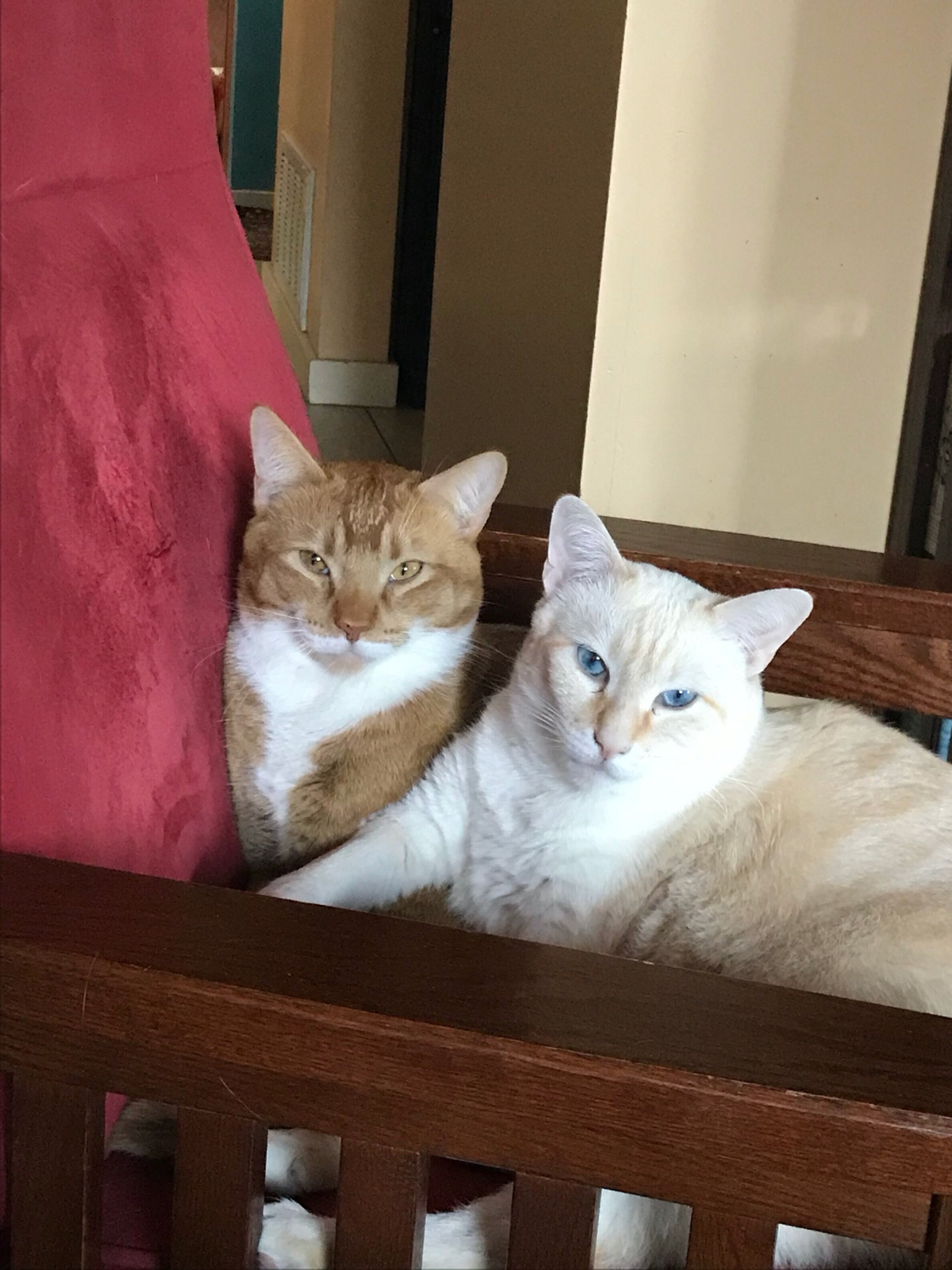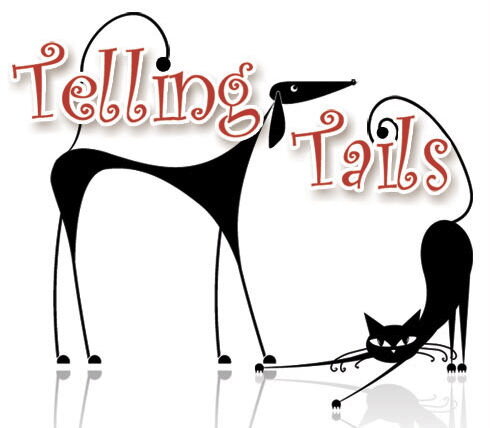
Frequently Asked Questions
How does animal communication work?
I communicate with your animals telepathically, connecting to them through your heart connection, with your permission and your intention. I connect to their spirits, so I don’t know if the pet is alive or deceased. Please tell me if an animal has died or the conversation won’t be as productive.
I receive information in a variety of ways including pictures, words, emotions, physical sensations and metaphors or symbolism. In order to receive information from your pet, I may ask you for information. For example, if you’re curious what your dog thinks of the petsitter, I’ll ask you for her name and physical description. If you want to know if your kitty likes the new food, I’ll ask if it’s wet, dry or raw and the primary protein. Open-ended questions are too general to be helpful. Simply put, the more specific the question, the better the information from your pet.
What happens during a consultation?
My role as an animal communicator is to give the animals a voice. A consult is your opportunity to have an interactive conversation with your pet, with me as facilitator.
Does my pet need to be present during the consultation?
No, but often the animal will choose to come into the room as the conversation progresses.
How should I prepare for a consultation?
You may find it helpful to make a list of questions, topics, and/or concerns before an appointment as a reference, just so you don’t forget anything of importance. Sample questions might be: How can we help you cope with thunderstorms? How do you like your food? What can I do to help you adjust to our new home? How are you getting along with the new kitty? Why are you barking at 3AM? Topics can include changes in the household (people leaving or joining, moving to a new place, new animals, remodeling construction, returning to work, travel plans), health, fears and anxiety, activities, and end of life.
You are not limited to the questions you draft beforehand, and we can follow where the conversation leads us. Many clients find it helpful to take notes during the consult. Please let me know if you plan to record the session and PLEASE DON’T POST ANYTHING ONLINE WITHOUT ASKING ME FIRST.
Do you need a photo of my animal for phone consultations?
Besides the fact that I enjoy seeing pictures of your pets, photos help me connect to them. If you are unable to send a photo, I can work without one; I’ll ask you to describe your pet in detail. If there are other animals in your household, please send photos of them as well, since they may ask to join the conversation or offer helpful information.
What if my animal is ill or I have an urgent issue?
Animal communication is not a substitute for veterinary care. If your animal is sick, please call your veterinarian right away.
I will do my best to schedule a consultation for urgent issues (illness, approaching death, sudden changes in the household) as soon as possible. In the case of illness, I can convey information from the veterinarian to your pet about the diagnosis and treatment, and ask your pet for additional information or clarification of symptoms that may be helpful to the situation. I cannot diagnose an illness.
Can you find lost pets?
Finding lost animals is an art unto itself, and not in my wheelhouse. However, many animal communicators specialize in lost pets, and you can use Penelope Smith’s Animal Communicator Directory to find someone at https://www.animaltalk.net/resources/AnimalCommunicationDirectory/
Can you make my pet stop or change a behavior?
Often an animal has good intentions and doesn't understand why the human finds a behavior upsetting or annoying: The barking dog thinks that surely you want to know when the mail carrier arrives every day. The cat thinks the texture of the sofa is perfect for sharpening nails. The horse thinks pooping in her water bucket is hilarious.
I can ask about the behavior, explain why you feel it's an issue and solicit information from your pet that may help you find a compromise or solution to the problem at hand. I can’t promise changes, but I’m often surprised by what happens after a conversation. (And no, I can’t make your dog stop eating poo or rolling in disgusting things. Dogs think we are ridiculous for not doing those things with them. Eww.)
Can you talk to an animal that no longer lives with me, or one that has passed on?
It may not be appropriate for me to talk to an animal that does not live with you. Please contact me to discuss the situation before scheduling an appointment.
I can connect with pets that have died. Most clients find comfort and a sense of peace after talking with an animal in spirit, especially if the death was sudden or traumatic.
Do you offer a guarantee that you will connect to my pet? How do I know that you’re “really” talking to my pet?
Nope, sorry, no guarantees. However, if either of us feels that I have not connected to your pet within a few minutes, the session will be terminated at no charge.
You’ll know I’m connecting if the information resonates with you. PLEASE don’t try to trick me (or any other animal communicator) by telling the pet to say a “code word” during the conversation. Sometimes the pet doesn’t want to play that game, and you’ll set yourself, and the animal, up for frustration. Remember, I am the animal’s voice during the consult, not a magician. Authentic communication is magical, however!
My significant other is skeptical. Can he/she attend the session with me? Can my friend attend?
Certainly. I will explain the process and answer any questions before I start the consultation. Sometimes a skeptic becomes a believer during the appointment because of something the animal says, or it may happen days later when the animal's behavior changes or a message the animal conveyed suddenly becomes clear.
Is there anything else I should know before the consult?
It is important that you be in a room without distractions, where you feel comfortable, quiet and focused. Take a few deep breaths, relax and open your heart!
Code Of Ethics For Interspecies Communicators
Formulated in 1990 by Penelope Smith
Our motivation is compassion for all beings and a desire to help all species understand each other better, particularly to help restore the lost human ability to freely and directly communicate with other species.
We honor those that come to us for help, not judging, condemning, or invalidating them for their mistakes or misunderstanding but honoring their desire for change and harmony.
We know that to keep this work as pure and harmonious as possible requires that we continually grow spiritually. We realize that telepathic communication can be clouded or overlaid by our own unfulfilled emotions, critical judgments, or lack of love for self and others. We walk in humility, willing to recognize and clear up our own errors in understanding others’ communication (human and non-human alike).
We cultivate knowledge and understanding of the dynamics of human, non-human, and interspecies behavior and relationships, to increase the good results of our work. We get whatever education and/or personal help we need to do our work effectively, with compassion, respect, joy, and harmony.
We seek to draw out the best in everyone and increase understanding toward mutual resolution of problems. We go only where we are asked to help, so that others are receptive and we truly can help. We respect the feelings and ideas of others and work for interspecies understanding, not pitting one side against another but walking with compassion for all. We acknowledge the things that we cannot change and continue where our work can be most effective.
We respect the privacy of people and animal companions we work with, and honor their desire for confidentiality.
While doing our best to help, we allow others their own dignity and help them to help their animal companions. We cultivate understanding and ability in others, rather than dependence on our ability. We offer people ways to be involved in understanding and growth with their fellow beings of other species.
We acknowledge our limitations, seeking help from other professionals as needed. It is not our job to name and treat diseases, and we refer people to veterinarians for diagnosis of physical illness. We may relay animals’ ideas, feelings, pains, symptoms, as they describe them or as we feel or perceive them, and this may be helpful to veterinary health professionals. We may also assist through handling of stresses, counseling, and other gentle healing methods. We let clients decide for themselves how to work with healing their animal companions’ distress, disease, or injury, given all the information available.
The goal of any consultation, lecture, workshop, or interspecies experience is more communication, balance, compassion, understanding, and communion among all beings. We follow our heart, honoring the spirit and life of all beings as One.
